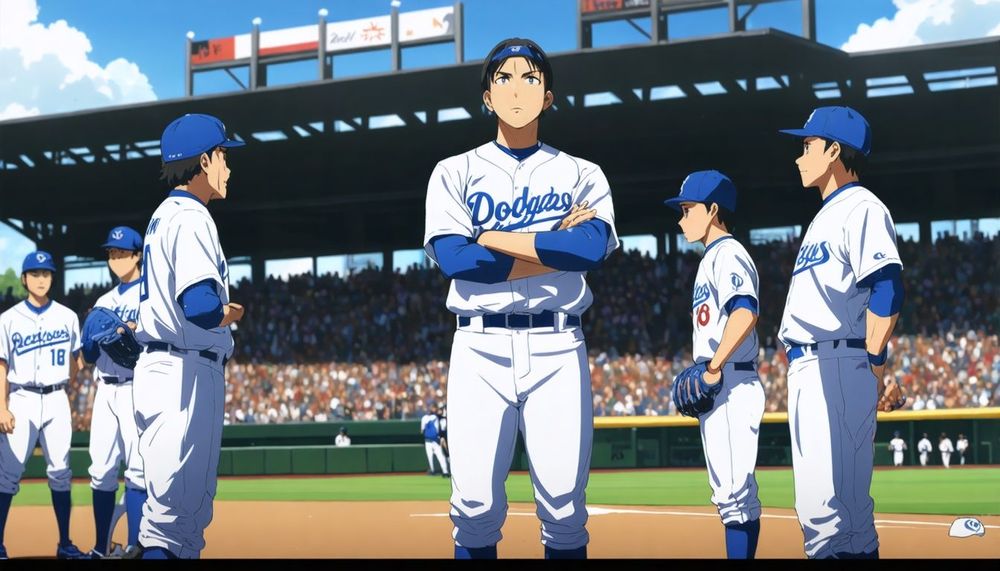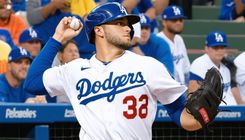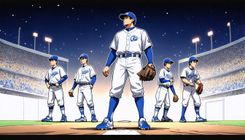MLB Power Rankings: Assessing Teams Post-Trade Deadline

As the MLB trade deadline concludes, the landscape of the league is poised for significant shifts as teams strategize for the final two months of the season. This evaluation forms the basis for this week's power rankings, reflecting the increasingly clear divide between buyers and sellers. The Los Angeles Dodgers and New York Mets, stocked with talent and hefty payrolls, stand out; however, the 2023 season has not seen a definitive top team. Notably, 10 different franchises have claimed the top spot in these rankings thus far, emphasizing the parity within the league.
The latest power rankings will consider team performances along with the dynamics brought on by trades made ahead of the deadline. Therefore, some teams may experience a drop in ranking despite winning, or conversely, gain ground despite less favorable results. As of now, 19 teams are identified as either buyers or sellers at the trade deadline, with only 12 securing playoff positions. The coming weeks promise further clarity as the postseason picture remains unsettled.
1. Milwaukee Brewers (67-44) - The Brewers have maintained an impressive record of 20-7 since July 1, marking a period of success that raises questions about potential midseason changes. Although their acquisitions at the deadline were modest, including catcher Danny Jansen and outfielder Brandon Lockridge, their strong overall performance attests to a franchise in good form.
2. Los Angeles Dodgers (65-47) - Surprising many, the Dodgers' trade deadline activity showcased minimal adjustments, with their primary notable acquisitions being fourth outfielder Alex Call and hard-throwing reliever Brock Stewart. Despite a lack of big names added, the return of Blake Snell from injured reserve adds depth to the pitching staff, and they anticipate getting third baseman Max Muncy back shortly as well.
3. Chicago Cubs (65-46) - The Cubs' trade strategy yielded several new faces, including starter Michael Soroka and relievers Andrew Kittredge and Taylor Rogers. Even without landing the impact starter they sought, the team finds itself in a strong playoff position. Their upcoming schedule, bolstered by competition against the lesser-performing teams, allows for a strong chase toward October.
4. Toronto Blue Jays (65-48) - The Blue Jays have stumbled somewhat after an impressive start, posting a lackluster record against both Baltimore and Kansas City previously. Nevertheless, their trade deadline moves were focused and directed, particularly in acquiring setup man Louis Varland, which may yield significant benefits moving forward.
5. Philadelphia Phillies (63-48) - Solidifying their roster with significant acquisitions like closer Jhoan Durán has elevated expectations for the Phillies. Also, the addition of Harrison Bader enhances their outfield depth. With the pieces in place, the team is well-positioned for a strong postseason push.
6. Detroit Tigers (65-48) - The Tigers demonstrated a proactive approach at the trade deadline, adding both pitchers and position players to enhance their overall depth. Their successful July performance solidified a favorable outlook within the AL Central ahead of what they hope will be a strong postseason.
7. Boston Red Sox (62-51) - The Red Sox sought upgrades on their roster but made limited moves at the deadline, focusing primarily on maintaining their existing talent. Their performance following early struggles demonstrates resilience, but questions remain regarding their capacity to push deeper into the playoffs.
8. San Diego Padres (62-50) - The Padres made significant trades, dealing away some prospects but acquiring key players like Mason Miller and Nestor Cortes. With their new additions, they aim to bolster their playoff contention efforts, showcasing a roster built for success.
9. Seattle Mariners (60-53) - By adding Eugenio Suárez and Josh Naylor to the lineup, the Mariners hope to strengthen their competitive edge. Their favorable remaining schedule positions them well in pursuit of the AL West title.
10. New York Mets (63-49) - Investing substantially in their relief corps by bringing in talent like Gregory Soto and Ryan Helsley has allowed the Mets to create a formidable bullpen. The added flexibility to their lineup can yield dividends if their stars perform as expected.
11. Houston Astros (62-50) - The Astros faced uncertainties regarding their playoff rotation, but with the potential return of several key pitchers, they remain a team to monitor in the postseason equation. However, the reliance on their injured players presents inherent risks.
12. New York Yankees (60-52) - The Yankees' deadline moves strengthened their bullpen while returning recently activated player Luis Gil to full health. Their mixed performances suggest they have tools at their disposal that may facilitate a successful run.
13. Texas Rangers (58-55) - The Rangers' strategy to bolster their pitching staff with additions like Merrill Kelly and Phil Maton underscores their ambitions for playoff success. Key player performances will be essential for their success in September.
14. Miami Marlins (55-55) - The Marlins have showcased promising development throughout the season. Despite some strategic trades, they continue retaining their core pitching talent that should position them well going into the next phase.
15. Cleveland Guardians (56-55) - Limited trade activity during the deadline saw the Guardians retaining key players, with the potential for their pitching depth moving forward. They remain competitive, but the materialization of playoff aspirations depends on various factors.
16. Kansas City Royals (56-56) - After choosing to add notable players at the deadline, the Royals are positioning for a potential postseason berth. Their recent additions will be critical for a team looking to secure a wild-card spot.
17. Cincinnati Reds (58-54) - The Reds made some adjustments, trading for key players but also retaining promising young talent. Their upcoming matchups will test their ability to maintain playoff ambitions.
18. Tampa Bay Rays (55-58) - The Rays employed a mix of buying and selling during the deadline. Their ability to shore up pitching and manage their youth will be pivotal as they seek to reestablish playoff contention.
19. San Francisco Giants (56-56) - The Giants focused on gathering prospect talent through controlled trades but did not push to add high-impact veterans at the deadline. Going forward, their competitive balance will be examined closely.
20. St. Louis Cardinals (56-57) - The Cardinals made notable trades to enhance their prospect pool without sacrificing immediate competitiveness. The balance between present and future aspirations remains a question mark.
21. Los Angeles Angels (54-58) - The Angels navigated their deadline with a mix of minor acquisitions while preserving core pieces. Their competitive outlook remains unclear as they try to find ways to remain relevant in the playoff chase.
22. Baltimore Orioles (51-61) - Selling off expected trade pieces while retaining some talent presents a complex rebuilding phase for the Orioles. Their future hinges on successful drafts and developing their young core.
23. Arizona Diamondbacks (53-59) - The Diamondbacks opted for trades that reinforced their future outlook rather than immediate needs, focusing on long-term development in their pitching ranks.
24. Oakland Athletics (49-65) - The Athletics acquired promising prospects in key trades but continue to work through roster strength issues. Their focus on youth development remains essential.
25. Pittsburgh Pirates (48-64) - The Pirates' decision to retain certain free agents while moving others highlights a mixed strategy that might play out in their favor in the long run.
26. Chicago White Sox (42-70) - The White Sox's trade deadline saw them pivot away from an unsuccessful season, aiming instead to assess youth talent.
27. Atlanta Braves (47-63) - The Braves decided against any significant trades, seeming to prioritize roster stability despite a disappointing season.
28. Minnesota Twins (52-59) - After extensive trades, the Twins' roster has shifted significantly, reflecting a long-term rebuild rather than a short-term reset.
29. Washington Nationals (44-67) - The Nationals sold pieces without disrupting their core, positioning themselves for a better future while remaining competitive.
30. Colorado Rockies (30-81) - The Rockies engaged in selling but continue to face challenges in establishing a competitive edge moving forward.









